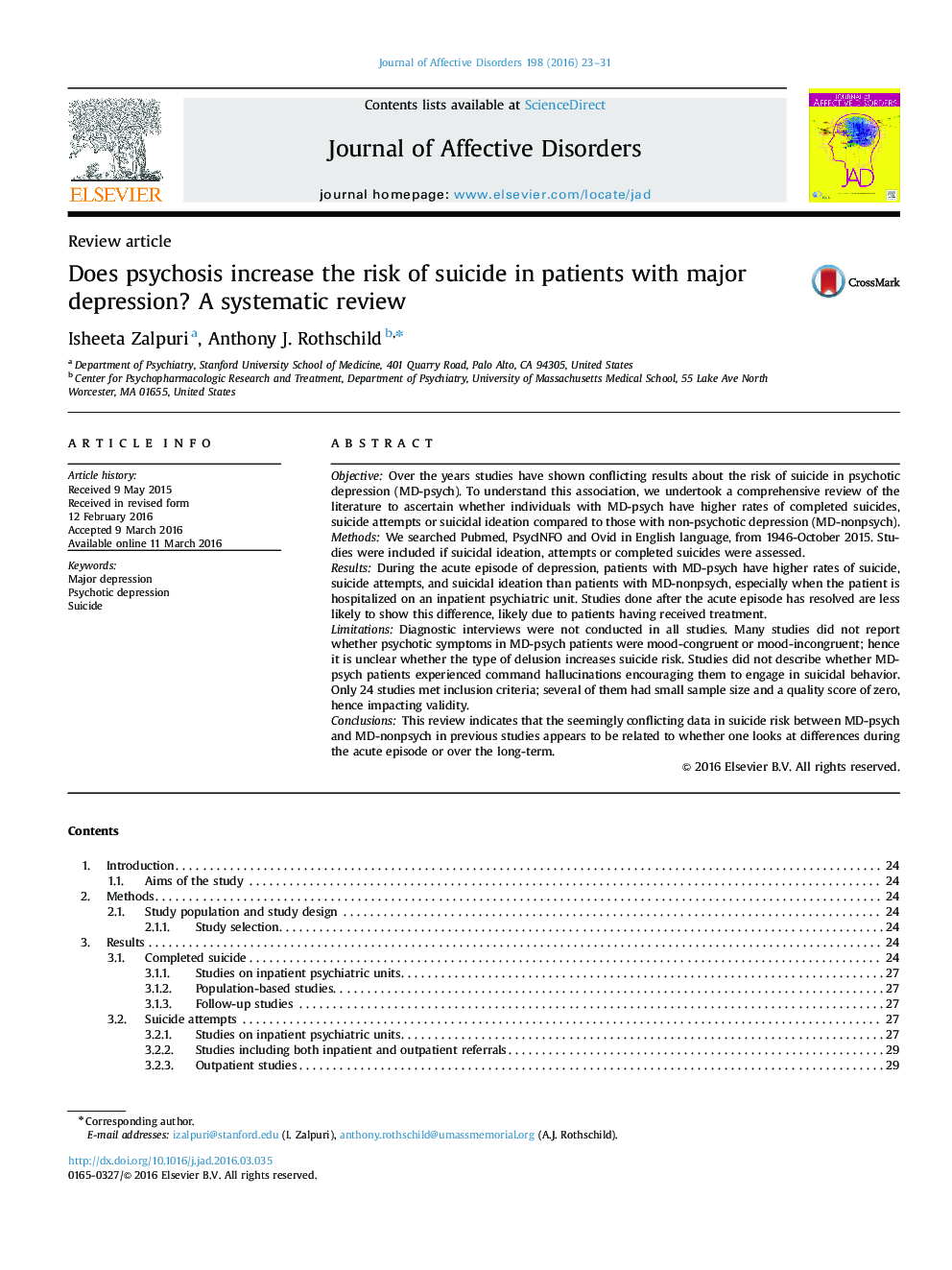| Article ID | Journal | Published Year | Pages | File Type |
|---|---|---|---|---|
| 6230179 | Journal of Affective Disorders | 2016 | 9 Pages |
â¢We compared risk of suicide in patients with psychotic depression (MD-psych) and non-psychotic depression (MD-nonpsych).â¢Our review suggests that in the acute episode, suicide risk is greater in MD-psych patients than MD-nonpsych patients.â¢Clinicians should carefully review patients' symptoms, so that psychotic symptoms are appropriately recognized and treated.
ObjectiveOver the years studies have shown conflicting results about the risk of suicide in psychotic depression (MD-psych). To understand this association, we undertook a comprehensive review of the literature to ascertain whether individuals with MD-psych have higher rates of completed suicides, suicide attempts or suicidal ideation compared to those with non-psychotic depression (MD-nonpsych).MethodsWe searched Pubmed, PsycINFO and Ovid in English language, from 1946-October 2015. Studies were included if suicidal ideation, attempts or completed suicides were assessed.ResultsDuring the acute episode of depression, patients with MD-psych have higher rates of suicide, suicide attempts, and suicidal ideation than patients with MD-nonpsych, especially when the patient is hospitalized on an inpatient psychiatric unit. Studies done after the acute episode has resolved are less likely to show this difference, likely due to patients having received treatment.LimitationsDiagnostic interviews were not conducted in all studies. Many studies did not report whether psychotic symptoms in MD-psych patients were mood-congruent or mood-incongruent; hence it is unclear whether the type of delusion increases suicide risk. Studies did not describe whether MD-psych patients experienced command hallucinations encouraging them to engage in suicidal behavior. Only 24 studies met inclusion criteria; several of them had small sample size and a quality score of zero, hence impacting validity.ConclusionsThis review indicates that the seemingly conflicting data in suicide risk between MD-psych and MD-nonpsych in previous studies appears to be related to whether one looks at differences during the acute episode or over the long-term.
